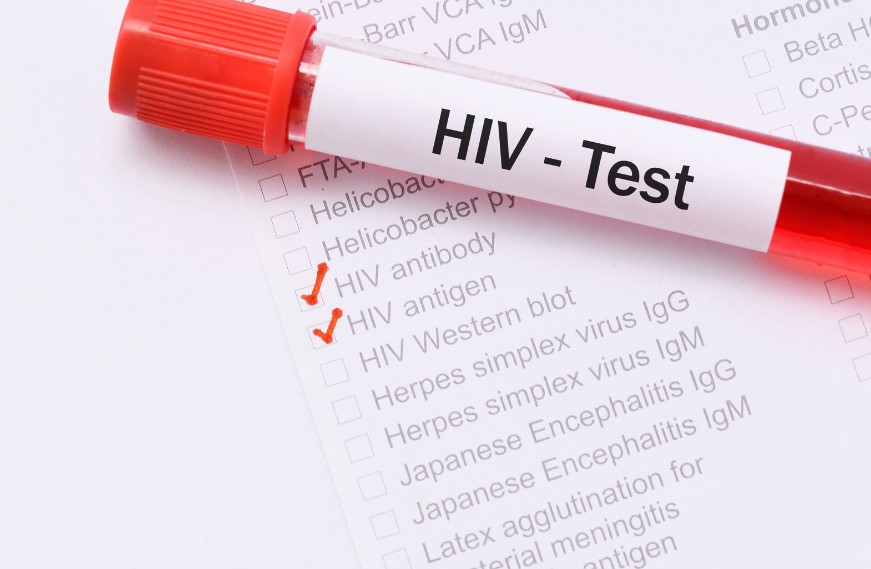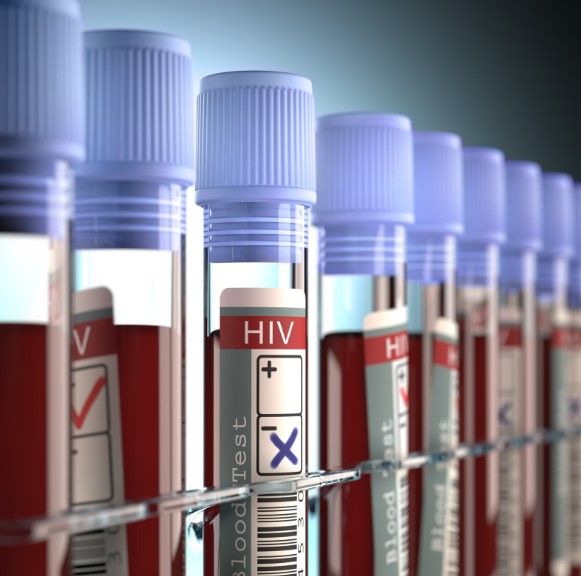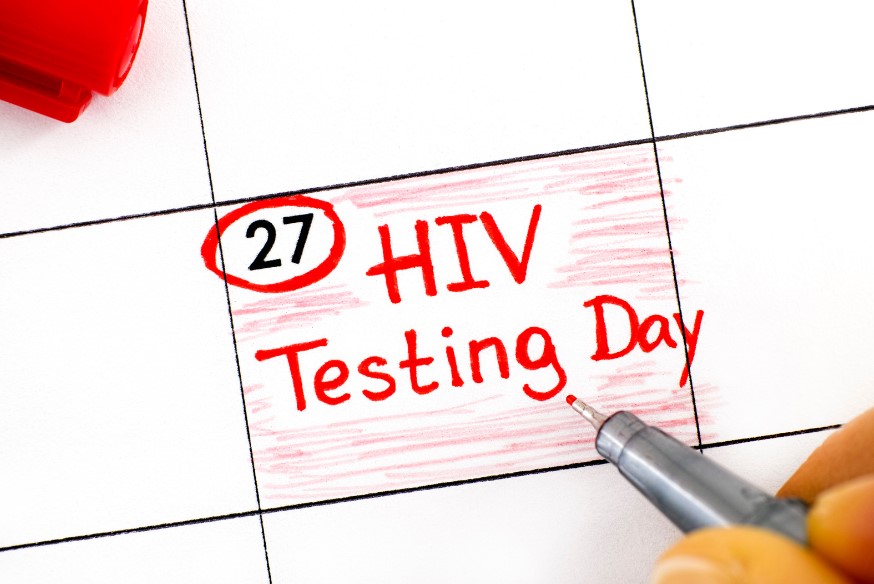Introduction to National HIV Testing Day
National HIV Testing Day, observed annually on June 27th, serves as a pivotal moment for public health initiatives aimed at increasing awareness about HIV and encouraging individuals to get tested. Established in 1995 by the National Association of People with AIDS (NAPWA), this day addresses the crucial need for regular HIV testing as a measure to combat the spread of the virus. The observance of National HIV Testing Day is integral to community outreach efforts, providing information, resources, and support to those who may be at risk or affected by HIV.
The primary objective of National HIV Testing Day is to underscore the importance of knowing one’s HIV status. Early detection through routine testing can significantly improve health outcomes and reduce the risk of transmission. Regular HIV testing is a cornerstone of preventive health care, as it allows individuals to seek timely treatment and make informed decisions about their health. In regions like South Florida, where HIV prevalence is notably high, such initiatives are particularly vital.
National HIV Testing Day also plays a critical role in public health education. It creates opportunities for healthcare providers, community organizations, and advocates to disseminate vital information about HIV prevention, treatment, and stigma reduction. Public awareness campaigns conducted on this day aim to demystify HIV testing and encourage a more proactive approach to health management among diverse populations.
National HIV Testing Day mobilizes communities through various activities, including free testing events, educational workshops, and media campaigns. It emphasizes that HIV testing is a routine part of healthcare, helping to normalize the practice and reduce associated stigmas. National HIV Testing Day contributes to the broader goal of ending the HIV epidemic by fostering a culture of regular testing and awareness.
HIV Statistics in South Florida
South Florida remains one of the regions in the United States with the highest rates of HIV infections. According to recent data from the Florida Department of Health, South Florida, particularly Miami-Dade and Broward counties, consistently reports higher rates of HIV compared to the national average. In 2022, Miami-Dade County alone accounted for over 4,000 new HIV diagnoses, making it one of the top counties nationwide for new infections.
The demographic distribution of HIV in South Florida highlights significant disparities. The epidemic disproportionately affects certain groups, with African American and Hispanic communities experiencing the highest rates of infection. In Miami-Dade County, for instance, nearly 60% of new HIV cases were among Hispanic individuals, while African Americans accounted for approximately 30% of new diagnoses. These figures underline the urgent need for targeted awareness and intervention programs within these communities.
Age and gender also play a critical role in the prevalence of HIV in South Florida. Young adults aged 20-29 represent the largest age group of new HIV diagnoses, suggesting that this demographic is particularly vulnerable. Men who have sex with men (MSM) continue to be the most affected group, representing a significant proportion of new infections. Notably, the rate of new HIV diagnoses among women, though lower than men, is also significant and requires focused attention.
National HIV Testing Day serves as a crucial reminder of the importance of regular testing and awareness, especially in high-prevalence areas like South Florida. By understanding the statistics and demographics most affected by HIV, health authorities and community organizations can better tailor their efforts to reduce new infections, promote early diagnosis, and improve access to care. Regular testing not only aids in early detection and treatment but also helps in curbing the spread of HIV, ultimately contributing to healthier communities.
The Importance of Regular HIV Testing
Regular HIV testing plays a pivotal role in the early detection and treatment of HIV, significantly improving health outcomes and curbing the spread of the virus. Early detection through routine testing can lead to timely intervention and management, which is crucial for maintaining a high quality of life for those living with HIV. Early diagnosis allows for the initiation of antiretroviral therapy (ART), which can effectively reduce the viral load to undetectable levels, thereby decreasing the risk of transmission to others.
Despite common misconceptions, HIV testing is essential for everyone, not just those who perceive themselves to be at high risk. The virus can affect individuals from all walks of life, and many people may be unaware of their status due to the often asymptomatic nature of HIV in its initial stages. Regular testing ensures that individuals are informed about their health status and can take the necessary steps to protect themselves and their partners.
Moreover, widespread and frequent testing is a critical component in public health strategies aimed at reducing the incidence of HIV. By identifying and treating individuals early, the overall community viral load can be reduced, which in turn lowers the chances of new infections. This approach not only benefits those who are HIV-positive but also contributes to the health and safety of the broader population.
In South Florida, where HIV prevalence is notably high, the importance of regular testing cannot be overstated. Community-based initiatives and accessible testing services are vital in encouraging individuals to get tested regularly. These efforts help to dismantle the stigma associated with HIV and testing, fostering an environment where people feel more comfortable seeking the care they need.
Ultimately, regular HIV testing is a fundamental step toward achieving better health outcomes and mitigating the spread of HIV. It empowers individuals with the knowledge of their status, enabling them to make informed decisions and access life-saving treatments. Regular testing is not just a personal health measure but a public health imperative that benefits the entire community.

National HIV Testing Day highlights the need for testing and raising HIV awareness. This annual observance underscores the importance of regular HIV testing, which is crucial for early detection and effective management of the virus. Early detection through routine testing allows individuals to seek timely treatment and make informed decisions about their health. In regions like South Florida, where HIV prevalence is notably high, such initiatives are particularly vital.
Common Myths and Misconceptions About HIV Testing
Despite the significant advances in medical science and public health education, various myths and misconceptions about HIV testing persist. These misunderstandings often deter individuals from seeking testing and can contribute to the continued spread of HIV. One prevalent myth is the belief that only certain groups, such as men who have sex with men or intravenous drug users, need to get tested. However, HIV does not discriminate based on sexual orientation, gender, or lifestyle choices. Everyone who is sexually active or has engaged in high-risk behaviors should consider regular testing.
Another common misconception is that HIV testing is a painful and invasive process. In reality, modern HIV tests are quick, simple, and minimally invasive. The most common types of tests include rapid blood tests, which require only a small finger prick, and oral swab tests, which involve swabbing the inside of the mouth. These tests can provide results in as little as 20 minutes, making them accessible and convenient for most people.
Some individuals also believe that a negative test result means they are not at risk for HIV in the future. While a negative result is certainly good news, it is important to understand that it reflects only the individual’s status at the time of testing. Continued safe practices and regular testing are essential for maintaining a healthy status, particularly for those who may engage in behaviors that increase their risk of exposure.
Furthermore, there is a misconception that HIV testing can lead to discrimination or breaches of privacy. It is crucial to know that HIV testing is confidential. Health providers are bound by laws and regulations to protect patient information. In South Florida, numerous clinics and organizations offer anonymous testing options, ensuring that individuals can seek testing without fear of stigmatization or privacy invasion.
By debunking these myths and providing accurate information, we can encourage more people to prioritize their health through regular HIV testing. This proactive approach is vital in the fight against HIV and in fostering a healthier, more informed community.
How to Get Tested for HIV in South Florida
In South Florida, getting tested for HIV is both accessible and convenient, thanks to a wide array of local testing centers, mobile testing units, and community health events. Understanding where and how to get tested can significantly contribute to early detection and effective management of HIV.
Local testing centers, such as the Florida Department of Health (DOH) facilities, offer comprehensive HIV testing services. These centers are strategically located throughout South Florida, making it easier for residents to access testing without significant travel. Many of these facilities provide free or low-cost testing options, ensuring affordability is not a barrier to knowing your status.
For those with limited ability to visit a health center, mobile testing units present a flexible alternative. These units travel to various communities and are often stationed at public events, festivals, and busy locations. Mobile units are equipped with the necessary tools to conduct rapid HIV tests, providing results within minutes. This makes them an excellent option for individuals seeking quick and private testing.
Community health events, like those at Continental Wellness Center, also play a crucial role in increasing awareness and accessibility. Events such as health fairs and National HIV Testing Day celebrations often include free HIV testing services. These events are typically organized by local health organizations in collaboration with community partners, aiming to reach a broader audience and encourage regular testing.
There are different types of HIV tests available. The most common is the rapid antibody test, which can detect HIV antibodies in the blood or oral fluid and provide results within 20 minutes. Another option is the antigen/antibody test, which can detect both HIV antibodies and antigens. This test requires a blood sample and is usually processed in a laboratory, with results available within a few days. Lastly, nucleic acid tests (NATs) can detect HIV RNA and are typically used for early detection or when exposure is suspected within the past 1-2 weeks.
During the testing process, individuals can expect to undergo pre-test counseling to understand the procedure and implications of the results. After the test, post-test counseling is provided to discuss the outcomes and, if necessary, arrange for follow-up care or treatment. The entire process is conducted with confidentiality and sensitivity, ensuring individuals feel supported throughout.
Understanding HIV Treatment and Management
For individuals diagnosed with HIV, comprehending the available treatment options is paramount. One of the most effective treatments is antiretroviral therapy (ART), which involves the use of a combination of HIV medicines to control the virus. ART is not a cure for HIV, but it significantly reduces the viral load in the body, often to undetectable levels, thereby improving the quality of life and reducing the risk of HIV transmission to others.
The benefits of ART extend beyond just viral suppression. By maintaining a low viral load, ART helps in preserving the immune system, preventing the progression to AIDS, and reducing the incidence of HIV-related illnesses. It is essential for individuals on ART to adhere strictly to their prescribed treatment regimen. Adherence means taking HIV medicines exactly as prescribed, which is crucial for the treatment to be effective. Poor adherence can lead to drug resistance, which can limit future treatment options and compromise health outcomes.
Regular medical check-ups are also a critical component of effective HIV management. Health care providers typically schedule routine visits for blood tests to monitor the viral load and CD4 cell count, which are indicators of how well the immune system is functioning. These check-ups allow for timely adjustments to the treatment plan if necessary and provide an opportunity to address any side effects or complications arising from the medication.
In addition to medical treatment, support services play a vital role in the management of HIV. These may include counseling, support groups, and education about living with HIV. Such services help individuals cope with the psychological and social aspects of the condition and promote a holistic approach to health and well-being.
Overall, understanding HIV treatment and management is crucial for those living with the virus. By adhering to ART, attending regular medical appointments, and utilizing support services, individuals can manage HIV effectively, leading to a longer, healthier life.

Public health education plays a critical role in HIV prevention. National HIV Testing Day creates opportunities for healthcare providers, community organizations, and advocates to disseminate vital information. Free testing events and educational workshops are part of these efforts, aiming to demystify HIV testing and encourage proactive health management. By promoting regular HIV testing and reducing associated stigmas, we can foster a culture of awareness and contribute to the broader goal of ending the HIV epidemic.
Support and Resources for People Living with HIV
Living with HIV presents unique challenges, but there is a wealth of support and resources available to help individuals manage their condition and lead fulfilling lives. In South Florida, various local and national organizations offer a range of services tailored to meet the needs of people living with HIV.
Local support groups play a crucial role in providing emotional and psychological support. Organizations such as the AIDS Healthcare Foundation (AHF) and the Pride Center at Equality Park offer peer support groups, where individuals can share their experiences and receive guidance from others who understand their journey. These groups often create a sense of community and belonging, which is invaluable for mental health and well-being.
Counseling services are another vital resource for individuals living with HIV. Many healthcare providers in South Florida, including Continental Wellness Center, offer counseling and mental health services. These services address issues such as anxiety, depression, and the emotional impact of an HIV diagnosis. Professional counselors can help individuals develop coping strategies and provide a safe space to discuss their concerns.
Financial assistance programs are also available to help alleviate the economic burden of living with HIV. The Ryan White HIV/AIDS Program is a federal initiative that provides grants to cities, counties, and local community-based organizations. In South Florida, this program helps ensure that individuals have access to medications, healthcare, and other necessary resources. Additionally, organizations like Continental Wellness Center assist in providing housing assistance and case management services to support those in need.
National organizations such as the Human Rights Campaign (HRC) and the National Alliance of State and Territorial AIDS Directors (NASTAD) offer a broader network of support and advocacy. These organizations work to promote policies and initiatives that improve the lives of people living with HIV across the country.
Local and national organizations ensure that individuals living with HIV have access to the necessary support and resources. By taking advantage of these services, people living with HIV lead healthy, fulfilling lives and feel empowered in their journey.
Conclusion: Taking Action on National HIV Testing Day
National HIV Testing Day serves as a pivotal reminder of the significance of regular testing and heightened awareness. This is especially true South Florida where the prevalence of HIV remains a critical public health concern. Regular HIV testing is indispensable for early detection, timely treatment, and effective management of the virus. Ultimately improving health outcomes and reducing transmission rates within the community.
As we observe National HIV Testing Day, it is imperative for individuals to take proactive steps by getting tested and encouraging others to do the same. This day offers a unique opportunity to access free or low-cost testing services, which can be a crucial first step towards understanding one’s health status. By knowing their HIV status, individuals can make informed decisions about their health and reduce the risk of unknowingly transmitting the virus to others.
Furthermore, spreading awareness about HIV and the importance of testing can foster a supportive environment where stigma and discrimination are diminished. Educating family, friends, and the wider community about HIV prevention, treatment, and the benefits of regular testing can play a significant role in combating the epidemic. Awareness campaigns, community outreach programs, and social media initiatives can all contribute to a more informed and compassionate society.
Community involvement, like that of Continental Wellness Center, is essential in the fight against HIV. Volunteering, donating, or participating in awareness events are all valuable ways to contribute to the cause. Collective efforts can significantly impact public health and drive progress towards reducing HIV incidence.
In conclusion, National HIV Testing Day is a critical occasion to take action. By getting tested, spreading awareness, and supporting community efforts, we can make strides in addressing the HIV epidemic in South Florida and beyond. Together, we can work towards a future where HIV is effectively managed, and the health and well-being of all individuals are safeguarded.
Need and HIV Test?
Join us this National HIV Testing Day and take the first step towards knowing your HIV status. Schedule an appointment with Continental Wellness Center for free testing and resources to help you stay informed and healthy. Together, we can make a difference.

